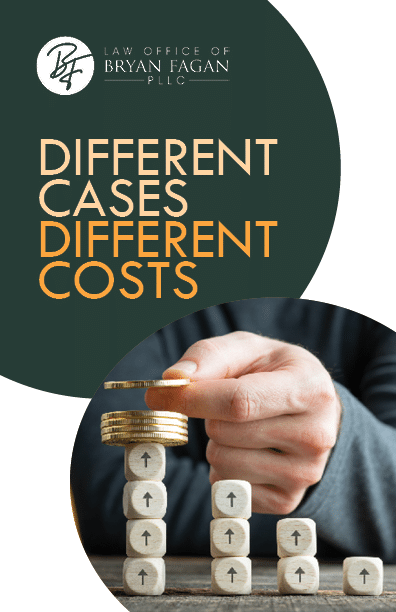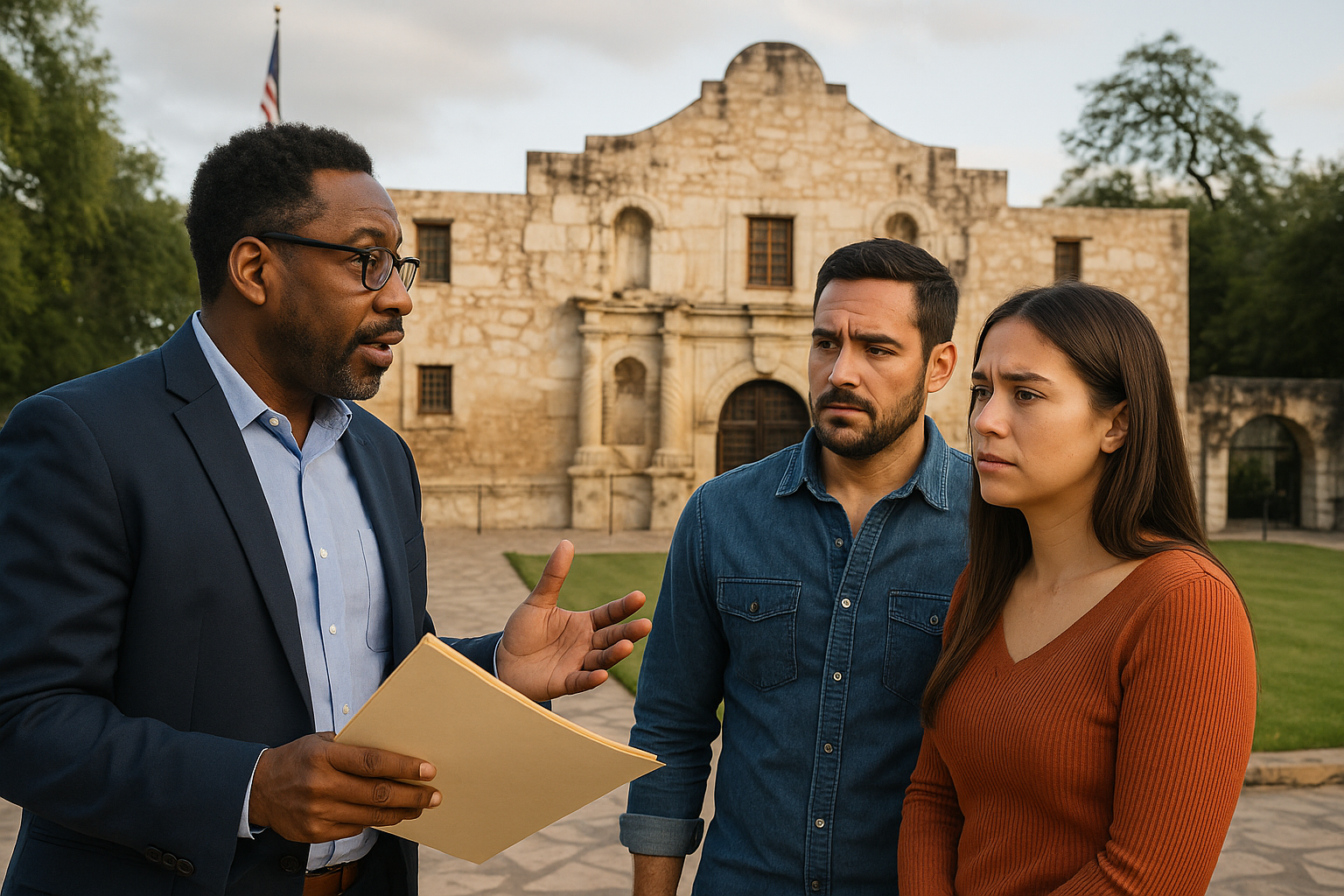
Divorce is often one of the most stressful chapters in a person’s life. The legal process brings emotional strain, financial pressure and the challenge of adjusting to a new reality. For many residents of San Antonio the cost of divorce is a serious obstacle. Filing fees, attorney charges and other expenses create barriers that feel impossible to overcome. Yet there are options for those who qualify and these options make the process accessible to all. Free Divorce in San Antonio, Texas: The Legal Side Explained offers an overview of how the system works and what families can expect when seeking affordable legal relief. It is not about bypassing the law but ensuring that legal rights remain available to everyone regardless of income.
The Meaning of Free Divorce
Understanding the Concept
The term “free divorce” can create confusion if not explained clearly. Divorce is always a legal process and it cannot be avoided by claiming hardship. Every case must be filed with the court, reviewed by a judge and finalized through a decree. What makes a divorce “free” is not the absence of procedure but the reduction or elimination of costs. Filing fees may be waived and nonprofit legal aid may replace costly attorney services. Community organizations often fill the gap with guidance and support. Together, these measures remove the financial obstacles that prevent many families from taking legal action.
Court Fees and Waivers
Court filing fees are standard in Texas. They usually fall in the range of a few hundred dollars. These fees cover administrative work, record-keeping and court operations. For low-income households even a few hundred dollars can be overwhelming. To address this, Texas allows applicants to file a Statement of Inability to Afford Payment of Court Costs. This is a sworn declaration outlining income, expenses and financial hardship. Judges review these applications carefully before granting waivers. Approval removes the financial barrier to filing. This ensures that justice is not limited to those with money in the bank.
Role of Legal Aid
Legal aid organizations extend the reach of the waiver system. While courts handle filing fees, legal aid addresses representation. Many people do not understand the complex language of legal forms. Nonprofit attorneys and volunteers step in to help. They guide applicants in completing petitions, explain deadlines and outline court expectations. In some cases they may even represent clients in hearings. Their involvement ensures that families are not left alone in a confusing system. These services, while limited are often the difference between success and delay in free divorce cases.
The Legal Process in Texas
Filing the Petition
Every divorce starts with the Original Petition for Divorce. This document identifies the parties, sets out the request for dissolution and can include information about children, property or debts. Even in free divorce cases, accuracy matters. Courts expect precise information and any errors can lead to delays. Filing correctly is the foundation of the entire process. Without it the case cannot move forward.

Service of Process
Once a petition is filed the other spouse must be notified. This step is known as service of process. It ensures that both parties are aware of the case and have the opportunity to respond. Service may be completed through a process server, sheriff or certified mail. In uncontested cases the spouse may sign a waiver of service, saving time and cost. Regardless of method, proper service is essential. It guarantees fairness and compliance with due process which is central to all legal proceedings.
Waiting Period
Texas law includes a mandatory waiting period of sixty days from the date of filing. This waiting period applies to nearly all cases, whether contested or uncontested. The intention is to provide time for reflection and careful decision-making. The law recognizes that divorce is a significant step and should not be rushed. Only in rare circumstances such as cases involving family violence may this waiting period be waived. For most couples it becomes an unavoidable pause before finalization.
Final Decree
The Final Decree of Divorce is the document that ends the marriage legally. It includes all terms regarding property division, child custody, visitation, support and debts. The decree is binding and enforceable under Texas law. Even in free divorce cases the decree carries full legal authority. Both parties must follow its terms or face consequences through enforcement actions. Judges review the decree carefully to ensure fairness, particularly when children or significant property are involved.
Uncontested and Contested Divorces
Uncontested Cases
An uncontested divorce occurs when both spouses agree on all issues. This includes decisions about property, debts, custody, support and visitation. These cases are ideal for free divorce pathways because they are straightforward. Judges review agreements for fairness but the process is often smooth and quick. Uncontested divorces require fewer hearings, less paperwork and less involvement from attorneys. As a result they are more affordable and accessible through nonprofit or court-supported programs.
Contested Cases
A contested divorce arises when spouses cannot agree on one or more issues. Disagreements may involve property division, child custody or spousal support. Contested divorces are more complicated, requiring additional hearings, negotiations and sometimes trials. These cases demand greater legal resources, which free divorce programs cannot always provide. While filing fees may still be waived, representation may not be available. Individuals facing contested divorces must often seek private attorneys or limited-scope assistance from legal aid.
| Type of Divorce | Key Features |
| Uncontested Divorce | Both spouses agree on all issues including property, debts, custody, and support. Requires fewer hearings and less paperwork. Judges still review agreements for fairness. Faster and more suitable for low-cost or free divorce pathways. |
| Contested Divorce | Spouses disagree on one or more issues such as property division, custody, or support. Requires additional hearings, negotiations, or even trial. More complex, costly, and less likely to be fully covered by free divorce resources. |

Eligibility for Free Divorce
Income Considerations
Eligibility for free divorce is tied closely to financial status. Courts use federal poverty guidelines to determine who qualifies. Applicants submit financial details including income, expenses and assets under oath. Judges then decide whether the request is valid. Providing accurate information is essential. False statements can lead to denial of the waiver and possible penalties for perjury.
Nonprofit Standards
Legal aid organizations apply their own eligibility standards. These often mirror court guidelines but may include additional requirements. Applicants may need to provide tax returns, pay stubs or benefit statements. Priority is often given to households with children, seniors or individuals with disabilities. Limited resources require strict screening, ensuring that help is directed where it is most needed.
The Role of Legal Aid in San Antonio
Community Organizations
San Antonio is home to several nonprofit organizations dedicated to supporting low-income residents. Legal aid groups provide guidance, educational materials and sometimes direct representation. Their services range from one-on-one meetings to community workshops. By helping residents complete forms correctly they reduce delays and ensure compliance with court rules.
Court-Based Help
Courthouse self-help centers add another layer of support. Staff cannot give legal advice but they can direct people to the correct forms and explain procedures. This guidance prevents common mistakes. While limited this support is invaluable for people unfamiliar with the legal system. It ensures cases move forward instead of being delayed due to technical errors.
Key Legal Issues in Divorce
Property Division
Texas follows community property law. Assets acquired during marriage are considered shared property. Judges divide them in a way that is fair and equitable. Division may include homes, vehicles, bank accounts, retirement funds and debts. Even in free divorce cases judges maintain strict oversight to ensure fairness.
Child Custody and Support
The best interests of the child remain the central focus in custody and support decisions. Judges evaluate stability, safety and parental ability. Child support is calculated based on income and state guidelines. Parents remain responsible for providing financial support, regardless of whether the divorce is free or paid.
Spousal Maintenance
Spousal maintenance, or alimony is awarded in limited cases. Judges consider the length of marriage, earning potential, and financial need. Free divorce cases follow the same standards. Maintenance is granted only when justified under state law, ensuring fairness for both parties.
Advantages of Free Divorce
Financial Relief
The most obvious benefit is relief from financial pressure. Filing fees and legal expenses no longer block access to the courts. Families can resolve legal matters without falling deeper into debt.
Fair Access
Free divorce promotes fairness by ensuring that every resident can exercise their rights. Access to justice should not depend on income and free divorce pathways uphold this principle.
Reduced Stress
When financial pressure is lifted, stress decreases. Families can focus on making sound decisions rather than worrying about cost. This creates a smoother transition for everyone involved.
Challenges That Remain
Complex Situations
Free divorce options work best for straightforward cases. Complex cases with contested custody, high-value assets or allegations of violence require more extensive representation. Free programs cannot always provide this level of service.
Limited Availability
Legal aid organizations face high demand. Not everyone who applies will receive full representation. Some may only receive guidance or access to workshops. Limited resources mean some families must still proceed on their own.
Paperwork Errors
Accurate paperwork is vital. Even small errors can delay a case or require re-filing. While courthouse staff provide assistance, responsibility remains with the individual. Careful attention is essential to avoid unnecessary delays.
Long-Term Value
Family Stability
Affordable divorce creates stability for families. Parents can finalize custody and support arrangements. Children gain security from clear and enforceable orders.
Trust in Legal Systems
Equal access to divorce increases trust in the courts. People see that justice is available to everyone, not only to those who can pay. This trust supports compliance with rulings and strengthens respect for the legal process.
Community Benefits
Accessible divorce benefits the wider community. Families rebuild without overwhelming debt. Public resources face less strain. Stronger families contribute to stronger neighborhoods and healthier communities overall.

In Summary
Divorce will always remain a difficult and emotional step but affordable legal pathways make the process less overwhelming. When filing fees are waived and nonprofit organizations provide assistance, families can resolve matters without the added burden of financial strain. Access to these resources ensures that every resident, regardless of income, can approach the courts with confidence.
The process still demands accuracy, patience and a willingness to follow legal procedures carefully. Judges continue to review agreements with the same level of scrutiny and the final decree carries the same authority as one obtained through costly legal representation. What changes is the ability for more people to seek justice without being blocked by financial obstacles.
In the broader sense, affordable divorce options promote fairness and strengthen trust in the legal system. Families gain stability, children benefit from clear arrangements and communities thrive when residents are able to rebuild their lives without overwhelming debt. By keeping the system open and accessible, San Antonio shows that justice is not a privilege but a right shared by all.
Other Related Articles:
- The Truth About Free Divorce Lawyers in Houston, Texas
- Understanding Free Divorce in Texas and What It Means for You
- How Low-Income Texans Can Handle a Free Divorce the Right Way
- Expert Insights on Free Divorce Documents In Texas
- Avoid These Mistakes When Considering Free Divorce Papers In Texas
- Legal Heroes: Free Divorce Lawyers Changing Lives!
- 6 Tips for Getting a Free Divorce Consultation
- When Is Filing for Divorce Online in Texas for Free the Right Choice?
- Important Facts About How To Get A Divorce In Texas For Free Every Texan Should Know
- The Legal Side of How To File For Divorce For Free In Texas Explained






